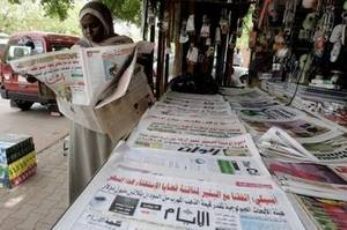Sudanese security confiscates Al-Gareeda newspaper for the fourth time
May 13, 2016 (KHARTOUM) – Sudan’s National Intelligence and Security Services (NISS) has seized copies of Al-Gareeda newspaper on Friday for the fourth time from the printing house without giving reasons.

However, the print runs of Al-Gareeda have been confiscated four times in the last five days.
Chief Editor of Al-Gareeda, Ashraf Abdel-Aziz said the newspaper incurred loss of 90,000 Sudanese pounds (SDG) (about $6,600) due to the confiscations.
“This would negatively impact on the financial conditions of the newspaper which has already been deprived of the paid government advertisements and hence it would impact on the conditions of journalists working for the newspaper,” he said .
Abdel-Aziz told Sudan Tribune that the NISS didn’t notify him of the reasons behind the repeated confiscations, saying his newspaper’s administration will hold a press conference on Saturday to discuss this issue.
Meanwhile, in a statement extended to Sudan Tribune Friday, Al-Gareeda said it wouldn’t get published on Saturday in protest against the repeated confiscations.
Last week, the non-governmental Journalists for Human Rights (JHR) network said the NISS instructed newspapers on 28 April to not publish news of the recent university demonstrations and the detention and dismissal of the students, saying however few newspapers including Al-Gareeda didn’t comply with the orders.
Sudanese press suffer from the high operating cost and the deteriorating value of the local currency which impacts on the journalists’ income and the plans to develop the newspapers industry.
The NISS routinely confiscates newspapers either to prevent circulation of certain stories or to punish them retroactively on previous issues.
It accuses the newspapers of crossing the red lines through publishing reports which adversely impact the national security.
Sudanese journalists say that NISS uses seizures of print copies of newspapers, not only to censor the media but also to weaken them economically.
(ST)
